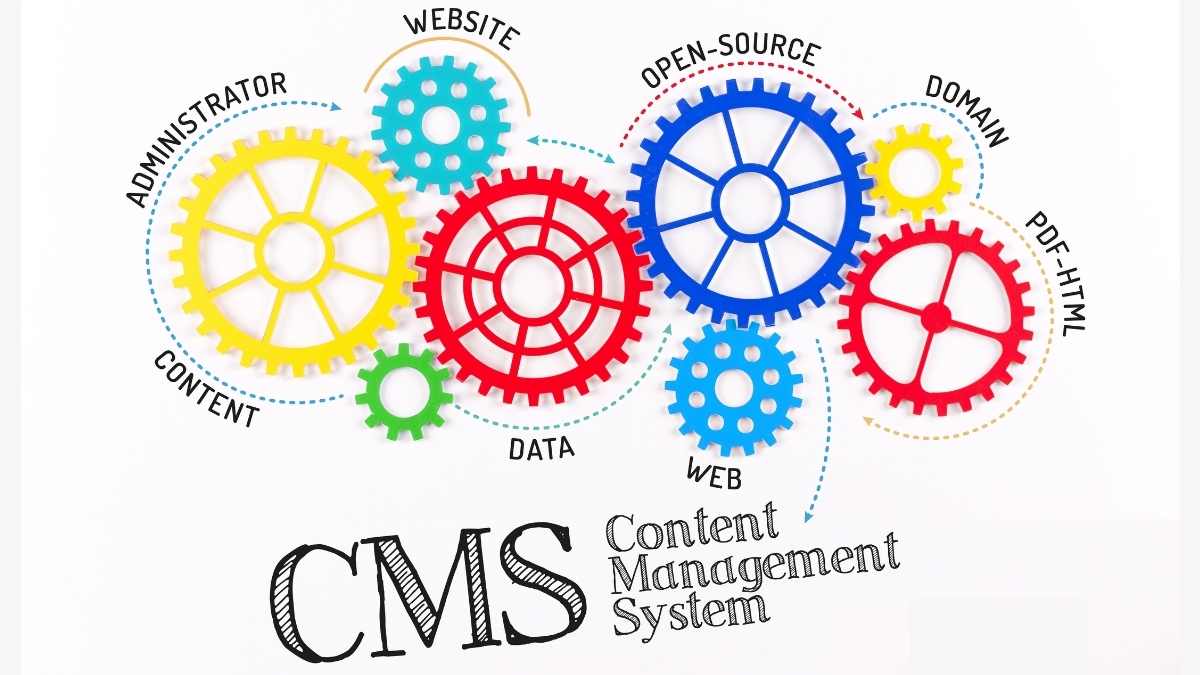In today’s digitally-driven world, businesses are leveraging the power of online marketing to reach wider audiences, boost brand visibility, and drive sales. Digital marketing, with its diverse strategies and ever-changing landscape, demands marketers to equip themselves with efficient and effective tools that streamline campaigns, analyze data, and deliver superior results.
In this comprehensive blog post, we will explore ten indispensable tools that every digital marketer must have in their arsenal. These tools will not only boost productivity but also empower marketers to gain deeper insights, make informed decisions, and thrive in the competitive world of digital marketing.
I. Google Analytics – Unleashing Data-Driven Marketing
At the core of every successful digital marketing strategy lies Google Analytics, a robust web analytics platform offered by Google. This indispensable tool provides invaluable insights into website traffic, user behavior, and conversion rates. Digital marketers can utilize Google Analytics to gain a comprehensive understanding of their audience, identify content preferences, and uncover potential growth opportunities.
The user-friendly dashboard of Google Analytics allows marketers to track key metrics such as the number of website visitors, the sources of traffic, bounce rates, and conversion rates. Armed with this data, marketers can make data-driven decisions to optimize website performance and design engaging user experiences.
For instance, a clothing retailer can analyze Google Analytics data to identify which products are the most popular among customers. By leveraging this information, they can showcase the best-selling items more prominently on their website and design targeted marketing campaigns to drive higher sales.
II. Social Media Management Tools – Mastering the Art of Engagement
In the age of social media dominance, managing multiple platforms can be overwhelming for digital marketers. This is where social media management tools come to the rescue. Platforms like Hootsuite, Buffer, and Sprout Social offer a centralized dashboard that allows marketers to schedule posts, monitor mentions, and engage with followers seamlessly.
These tools play a crucial role in improving efficiency and ensuring a consistent social media presence. By effectively managing social media interactions, digital marketers can build brand loyalty, foster meaningful relationships, and amplify their online presence.
For instance, a restaurant owner can use social media management tools to schedule engaging content, respond to customer reviews promptly, and showcase mouthwatering images of their dishes. This not only keeps the audience engaged but also encourages word-of-mouth recommendations and repeat visits.
III. Email Marketing Software – Forging Strong Customer Connections
Despite the rise of various communication channels, email marketing remains a powerful tool for nurturing leads and building lasting customer relationships. Email marketing software, such as Mailchimp and ConvertKit, empowers marketers to create personalized email campaigns, automate customer journeys, and analyze performance metrics.
Personalization is a key component of successful email marketing. Marketers can segment their audience based on demographics, purchase history, and user behavior, delivering relevant content tailored to each segment. By doing so, digital marketers can ensure that their messages resonate with the recipients, leading to higher open rates, click-through rates, and ultimately, more conversions.
For example, an e-commerce store can use email marketing software to send personalized product recommendations to customers based on their previous purchases and browsing behavior. This not only encourages repeat purchases but also strengthens customer loyalty.
IV. Keyword Research Tools – Conquering the Search Engine Battlefield
In the world of digital marketing, search engine optimization (SEO) is a crucial aspect that determines a website’s visibility and organic traffic. Keyword research tools like Google Keyword Planner and SEMrush are indispensable for identifying relevant keywords and phrases that potential customers use to find products or services online.
Keyword research lays the foundation for successful content creation and optimization. By targeting the right keywords, marketers can craft content that resonates with their target audience and boosts search engine rankings. This, in turn, drives organic traffic to the website, increasing the chances of lead generation and conversions.
For instance, a travel agency looking to enhance its online presence can use keyword research tools to identify popular travel destinations and related search queries. By creating informative blog posts and landing pages around these keywords, the agency can attract more potential travelers and grow its customer base.
V. Content Management Systems (CMS) – Empowering Your Content Strategy

Creating and managing digital content efficiently is paramount for successful digital marketing campaigns. A robust Content Management System (CMS) such as WordPress or Drupal streamlines content creation, publication, and organization.
A CMS provides marketers with a user-friendly interface, allowing them to create, edit, and publish content without the need for extensive technical knowledge. This level of control empowers marketers to implement SEO best practices, optimize pages for search engines, and create engaging user experiences.
For example, a software company can use a CMS to update its blog regularly with informative articles and product updates. With easy access to publishing tools, the marketing team can keep their audience informed about the latest developments, build thought leadership, and drive traffic to the website.
VI. A/B Testing Software – Unlocking Conversion Magic
Data-driven decision-making is a hallmark of successful digital marketing campaigns. A/B testing tools like Google Optimize and Optimizely allow marketers to compare different variations of landing pages, calls-to-action (CTAs), and other elements to identify the most effective approach.
A/B testing helps marketers understand user preferences and optimize their campaigns for higher conversion rates. By experimenting with different design elements and content variations, marketers can uncover the elements that resonate best with their audience.
For instance, an e-commerce store can use A/B testing to compare two different CTA buttons for their checkout process. By analyzing the data, they may discover that a specific color or wording leads to more completed purchases, leading to increased revenue.
VII. Marketing Automation Platforms – Elevating Your Efficiency
Marketing automation platforms such as HubSpot and Marketo offer a wide range of tools to streamline workflows, automate repetitive tasks, and deliver personalized customer experiences. These platforms enable marketers to create automated customer journeys based on user behavior and interactions.
Marketing automation allows marketers to send timely and relevant messages to the right audience. By nurturing leads with personalized content, marketers can guide prospects through the buyer’s journey and build lasting customer relationships.
For example, an online course provider can use marketing automation to send a series of personalized emails to new subscribers, introducing them to different course topics. By tracking the recipients’ interactions, the platform can automatically recommend courses that align with the subscribers’ interests, increasing the likelihood of course enrollment.
VIII. Video Creation Tools – Captivating Visual Storytelling
Video marketing has emerged as a powerful tool to captivate audiences and convey brand messages effectively. Video creation tools like Adobe Premiere Pro and Animoto allow marketers to create engaging videos without the need for extensive technical skills.
Videos have the ability to evoke emotions, making them an ideal medium for storytelling and brand engagement. By leveraging video marketing, digital marketers can enhance brand awareness, engage audiences, and foster strong emotional connections with their target market.
For example, a nonprofit organization can use video marketing to showcase its humanitarian efforts, sharing heartwarming stories of beneficiaries. These emotionally charged videos can motivate viewers to support the cause, drive donations, and boost the organization’s impact.
IX. Heatmap and User Behavior Analysis Tools – Reading Your Users’ Minds
Understanding how visitors interact with your website is essential for optimizing user experience and increasing conversions. Heatmap and user behavior analysis tools like Crazy Egg and Hotjar provide visual insights into user engagement, revealing where visitors click, scroll, and spend the most time.
Heatmaps display aggregated data, illustrating the most and least popular areas of a webpage. Additionally, user behavior analysis tools track individual sessions, giving marketers a more detailed view of user interactions. By combining these insights, marketers can make data-driven decisions to enhance website performance and cater to their audience’s preferences.
For example, an e-commerce retailer can use heatmaps to identify which product images receive the most clicks on their product pages. Armed with this information, they can optimize product placement and presentation to maximize conversions and sales.
X. Project Management Software – Organize, Collaborate, Succeed
Digital marketing involves collaboration between multiple team members and managing various tasks simultaneously. Project management software like Asana or Trello provides a structured and organized approach to streamline workflows and ensure efficient project execution.
With project management tools, marketers can assign tasks, set deadlines, and monitor progress in real-time. These platforms also enable seamless communication among team members, ensuring everyone is on the same page and meeting deadlines.
For example, a marketing agency can use project management software to manage a website redesign project. The platform allows the team to assign tasks to designers, developers, and content creators, track progress, and ensure that the website is launched on schedule.
Conclusion
As the digital marketing landscape continues to evolve, equipping oneself with the right tools is essential for achieving success. The ten must-have tools discussed in this blog post are indispensable for any digital marketer looking to excel in their marketing efforts.
Google Analytics provides valuable data-driven insights into user behavior and website performance. Social media management tools enable efficient engagement and brand building across multiple platforms. Email marketing software allows for personalized communication and customer relationship management.
Keyword research tools help conquer the search engine battlefield, while Content Management Systems empower marketers with content creation and organization. A/B testing software enables data-driven optimization, and marketing automation platforms elevate efficiency in customer interactions.
Video creation tools facilitate captivating storytelling, and heatmap and user behavior analysis tools provide insights to enhance user experience. Finally, project management software streamlines collaboration and ensures efficient project execution.
By incorporating these essential tools into their marketing arsenal, digital marketers can gain a competitive edge, drive superior results, and stay ahead in the ever-changing world of digital marketing. Embrace these tools, adapt to emerging trends, and continuously refine your strategies to stand out in the digital marketing arena. Your journey towards digital marketing greatness begins now! Happy marketing!







